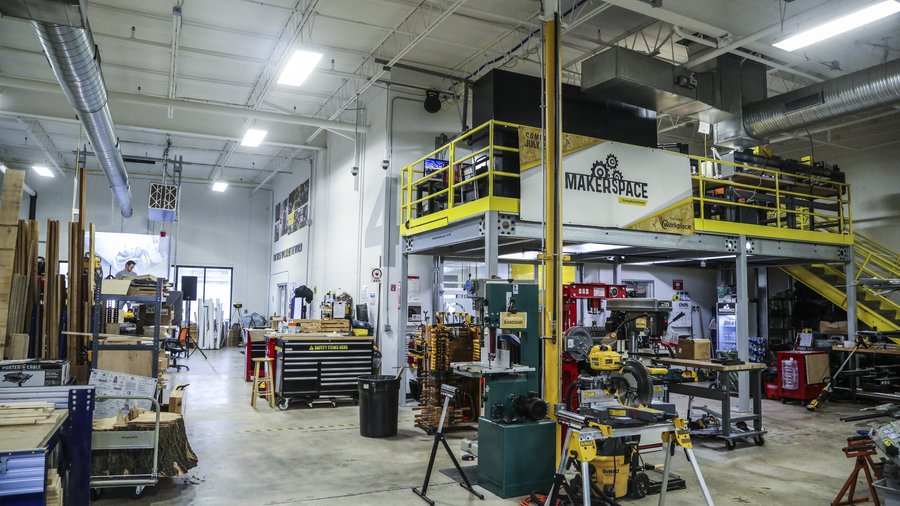Another large publicly traded company with deep roots in Greater Baltimore has cut ties with Russia as the country continues to lay siege to Ukraine.
Tools manufacturing giant Stanley Black & Decker Inc. (NYSE: SWK) released a statement on its social media channels Tuesday saying the company has decided to shut down its operations in Russia.
"Stanley Black & Decker stands in solidarity with the people of Ukraine," the company said, adding that it plans to donate a total of $1 million to the United Nations High Commissioner for Refugees, the UN Refugee Agency, UNICEF and the Red Cross to support humanitarian efforts.
The company will also double its match for employee donations to approved charitable organizations to 2-for-1.
Stanley Black & Decker (NYSE: SWK) is headquartered in New Britain, Connecticut, but its $12.8 billion tools and storage business — which comprises most of the company's $15.6 billion in annual revenue — is based in Towson. The company employs more than 2,000 people in Maryland and around 60,000 globally. The company is the result of a 2010 merger of Stanley Works and Black & Decker, which was originally established in Towson in 1910.
Under Armour Inc., Nike, H&M, Apple and Microsoft are among the other companies that have halted sales in Russia. Stanley Black & Decker has gone a step further with its decision to shut down the business altogether.
President and Chief Financial Officer Donald Allan told analysts during a March 7 investor conference that Stanley Black & Decker's Russia business has about 100 employees and generates close to $150 million in annual revenue. He said the Russian business has been "dramatically devalued" due to the decline of the Russian ruble amid economic sanctions imposed by the U.S. and other countries.
"The business will continue to be under pressure as long as these sanctions are in place, which appears like it probably will be for quite some time," Allan said. "So we have a question that we have to figure out is, is this still a business we want to have long term in Russia, or is it something that we just have to exit over the coming weeks or months? So that's something we're watching very closely to see how it plays out."
Allan's comments came a day before the company's tweet announcing the closure of the Russian business.
Stanley Black & Decker also has a "relatively small" amount of business in Ukraine. The company has 10 employees in Ukraine and generates about $5 million to $6 million in revenue annually from sales in the country, Allan said.
The company does not manufacture its products in either country, Allan said. Stanley Black & Decker has about $30 million to $40 million of inventory in Russia that Allan said the company will "figure out how to navigate through."
Overall, Allan said the situation in Eastern Europe "really doesn't feel like a big risk at this point..unless you start to believe that it's a much broader global risk."
Since Russia began its invasion of Ukraine on Feb. 24, Stanley Black & Decker has focused on making sure its employees in Ukraine are safe. Allan said the company has been trying to find out where employees are and whether they want to leave Ukraine.
Men who are at least 18 years old cannot leave, so Stanley Black & Decker has tried to help make sure the families of those individuals have been able to escape.
"At this point, we've done everything we can, but we continue to monitor their safety through this really horrible situation," Allan said.
